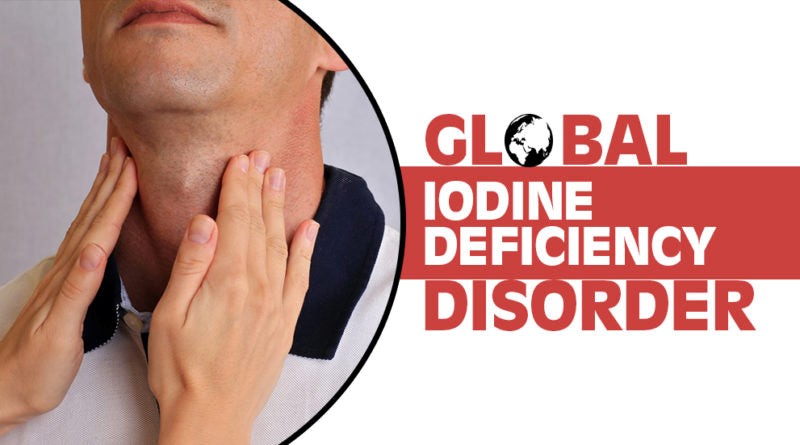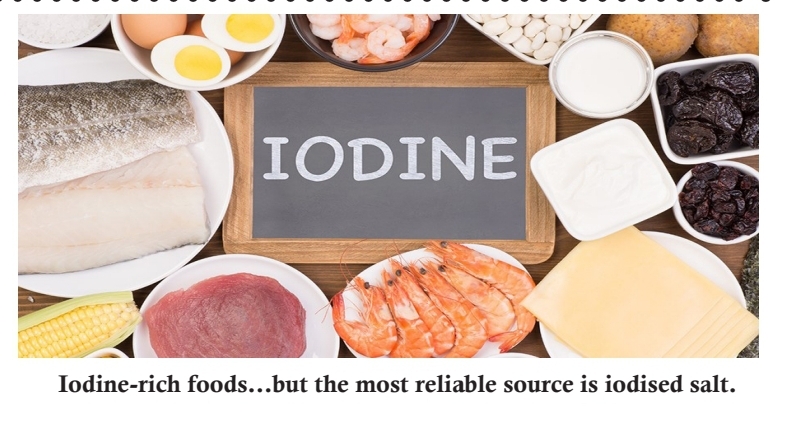Goa is abuzz with excitement as vintage bike and car owners, users, collectors and fans are decking […]

GET YOUR DAILY DOSE OF IODINE
MIND & BODY, HEART & SOUL, Oct 21- Oct 27 2023 October 20, 2023On the Global Iodine Deficiency Disorder Prevention Day observed on Oct 21 the Goan Observer spoke with DR AMIT DIAS, who has been involved in the research of iodized salt and goiter in the state of Goa. “Iodine deficiency causes more than just Goiter,” he explains. Let’s enlighten ourselves:
Q: What exactly are iodine deficiency disorders?
A: Iodine deficiency occurs when your thyroid gland lacks the amount of iodine needed to function optimally. Our thyroid gland is the butterfly-shaped gland located in the front of the neck. It’s the one that produces the thyroid hormones, which are essential for maintaining many bodily functions such as heart rate, metabolism, body temperature, supporting proper growth and development, etc.
Even the unborn baby needs thyroid hormones for proper bone and brain development during pregnancy. Iodine deficiency during pregnancy can cause severe complications and the baby can be born with a condition called cretinism. It can affect learning ability and cause mental retardation, stillbirth and miscarriage. Other problems can include infertility, hoarseness of voice, dry skin, confusion, thinning of hair, etc. Iodine deficiency causes a spectrum of disorders and goiter is just one of them.
Q: What exactly is a goiter?
A: A goiter refers to an enlarged thyroid gland. The thyroid gland grows larger in an attempt to keep up with your body’s demand for more thyroid hormone. A goiter may be an overall enlargement of the thyroid, or it may be the result of irregular cell growth that forms lumps or nodules in the gland. A goiter may be associated with no change in thyroid function or may result in an increase or decrease in thyroid hormones. It is a treatable condition and one needs to see a doctor. A goiter is just the tip of the iceberg. There is a lot more damage taking place inside the body due to iodine deficiency.
Q: What is iodine?
A: Iodine is a micronutrient that is essential for the body as the body does not produce its iodine. You can get iodine from the food you eat; however, this is often not sufficient to meet the recommended daily allowance and leads to Iodine-deficiency disorders.
Q: What are the sources of Iodine?
A: Iodine is present in some foods: Iodine is present in the seawater. Seafood therefore contains iodine — seaweed, shrimp, fish and other seafood. Dairy products, such as milk, yogurt and cheese also contain iodine.
Iodine available in fortified salt: Iodine deficiency used to be common in certain high altitude areas in India. We often would refer to this area as the goiter belt. Now we realize that it is endemic in most of regions. The rates of iodine deficiency disorders have dropped after the introduction of iodized salt.
Q: That sounds like good news for Goans. We are on the coastal belt and eat seafood so we are goiter free- right?
A: Unfortunately, that’s not the case. Contrary to popular belief, this is not true. I conducted a study on children and the use of iodized salt in the state of Goa, we found that around 15% of the children had an enlarged goiter and some of them had abnormal thyroid function.
A lot of Goans still use non-iodized salt to cook curries, meat, pickles, etc, and this decreases the amount of iodized salt consumption. The iodized salt supplied in Goa was found to have an adequate amount of iodine as per the norms. However, the urine samples of children showed low iodine levels. This needs further investigation on the cooking processes and the consumption pattern.
We also examined the sea salt available in the state of Goa for the presence of iodine. We found that it was available, but was on an average seven parts per million which was below the recommended 15 parts per million.
Q: What is your message to our readers?
A: Prevention is always better than cure. The neurological damage done by iodine deficiency is irreversible. Always use iodized salt for cooking. Be aware of the signs of deficiency and visit a doctor for help. Achieving the elimination of iodine deficiency disorders requires the full cooperation of everyone. Iodine is required in a very small amount but is required on a daily basis. Get your daily dose of iodine.

















